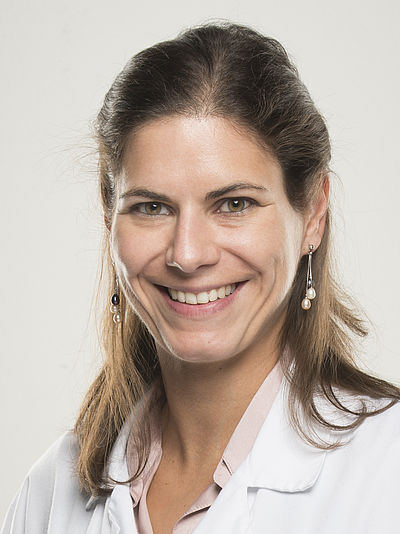Revealing the cause of death
Forensic imaging has taken a leap forward thanks to the post-mortem angiography technique developed at CHUV. Fluids flow through blood vessels without a beating heart.
International recognition continues to grow for post-mortem angiography, a technique developed by Silke Grabherr, chief of the University Center of Legal Medicine Lausanne-Geneva (CURML). "We conducted a study of 500 cases in nine European centres that use this technique. The findings show that angiography is even more accurate than an autopsy," the expert says.
Before opening the body of a person who has died from a suspicious cause, the body is scanned and injected with a contrast agent to study vascular damage, vessel occlusion and sources of bleeding to determine the cause of death. But the fluid cannot be pumped through the body as the heart is no longer beating. "To overcome this problem, we had to identify the adequate liquid and the best way to make it circulate within the vessels," says Dr Grabherr.
"It took several years of research to find the ideal solution that would provide images enabling us to visualize the blood vessels."
Dr Grabherr began her research for her dissertation as a medical student at the Institute of Forensic Medicine in Bern, and it began to take more concrete form at CHUV. The material used for her technique was patented and is now sold by a private company. With her team and a network of international centres, she is working to perfect this imaging technique and extend it to specific cases. "We want to develop specific procedures, especially for children, to determine how much to inject and how to adapt the perfusion device." Another solution is to find a new contrast agent that does not interfere with certain causes of death. "We currently use a mix of paraffin oil and contrast product called Angiofil developed by a Swiss company, but it’s not adapted for cases of fat embolism," she says.
Source: In Vivo special edition (2019) / Photo: DR
Support our activities
The Foundation CHUV aims to get the community involved in supporting its treatment, research and training missions. The philanthropic gestures received at the Foundation aim to optimise patient care and develop scientific knowledge in the field of health for the good of all. Patients, their family and friends, the community and the medical and care staff are at the heart of its activities.


